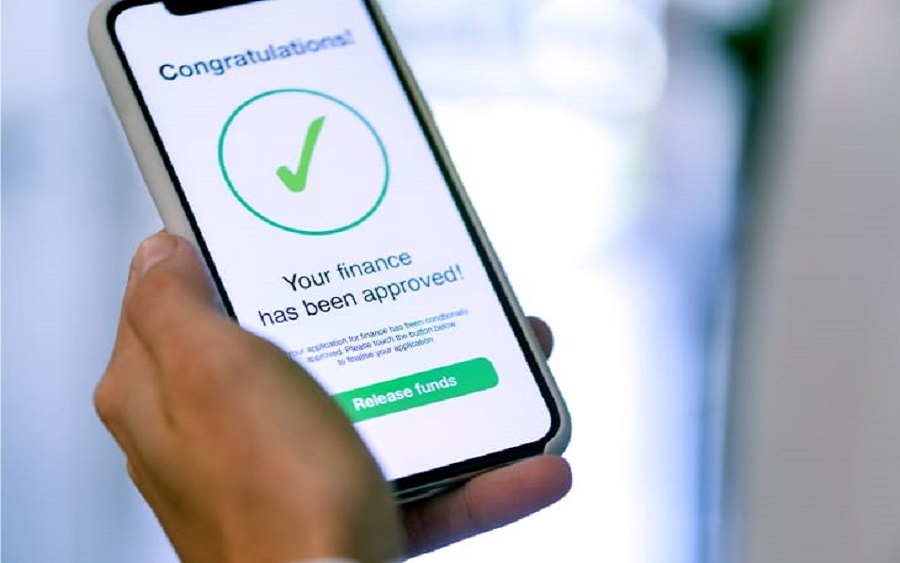Key highlight
- The Arvo Finance CEO said the ban on access to customers’ phones and photos, though a good development, will slow down the process of verifying borrowers’ identity.
- He said this will also lead to an increase in non-performing loans for the lenders.
- He, however, suggests other alternative ways digital lenders can verify their customers’ identities quickly.
The Chief Executive Officer of Arvo Finance, Mr. Ayotunde Bally, has said that borrowers from loan apps should expect a slower process of facilitating their loans once the ban on access to their photos and contacts is implemented from May 31.
While noting that the ban by Google, which was influenced and supported by the Federal Competition and Consumer Protection Commission (FCCPC), was a step in the right to protect the consumers, Bally in a media interview said it would now take more time for the digital lenders to verify customers’ identity, employment, and creditworthiness.
Bally, whose company is a fintech solution that provides quick loans, online loans, and short-term loans in Nigeria with no collateral and guarantors, said the ban would also lead to an increase in non-performing loans for digital lenders.
Safeguarding customers’ privacy
Acknowledging that the decision to ban loan apps from accessing customers’ contacts and photos is a step toward safeguarding the privacy of individuals, Bally said the move would ensure that loan providers only had access to essential information to manage risk and offer credible lending services without subjecting customers to undue harassment or exploitation. He, however, pointed out that the ban has its disadvantages for the customers and the lending companies.
- “Some of the disadvantages of the ban is that it will slow down the lending process by extending the time required to verify customers’ identity, employment, and creditworthiness, and also increase non-performing loans of online lenders,” he said.
Alternative verification methods for lenders
Bally, however, advised online lenders to use various methods to determine the creditworthiness of their customers in the absence of essential information databases.
- “While accessing customers’ contacts and photos may be a useful method of verifying customers’ identities and creditworthiness, there are alternative options that online lenders can use.
- “One method is to require customers to provide relevant identification documents and other financial information, such as bank statements or payslips.
- “This information helps lenders to verify their customers’ identities while also providing insights on their financial history,” he said.
The Arvo Finance boss also urged online lenders to use an algorithm that assesses the creditworthiness of potential borrowers based on alternative data sources such as social media activities, online search history, and behavioral patterns. These methods, he said, could be used to assess customers’ trustworthiness in a less intrusive way. He said there was also the possibility of collaboration between online lenders and credit bureaus to pool information and create comprehensive credit reports.
Loan apps registration commended
Bally also commended the Federal Government for approving 173 loan apps through the FCCPC. According to him, the government’s decision to register loan apps highlighted the importance of fintech regulation in Nigeria to combat fraudulent lending practices and to protect customers from predatory lending.
He said that registering these loan apps would provide more transparency, accountability, and control in the lending process. Bally added that it would reduce the risk of illegal lending activities and sanction lenders who engage in abusive practices.
In case you missed it
The FCCPC recently released a list of 173 companies approved to operate as digital money lenders in Nigeria. The approval came as the deadline for the registration of the companies closed on March 27.
Out of the 173 companies registered and approved by the Commission were given full approval, while 54 were given conditional approval as they have other conditions to fulfill.
With the registration deadline now elapsed, Google will also remove all unregistered loan apps from the Play Store as it had earlier issued an update to all loan apps in Nigeria compelling them to provide an approval document from the FCCPC or be removed from the platform.
The loan apps on Google Play Store will lose their ability to gain access to their customer’s contact numbers and pictures starting from May 31, 2023

















